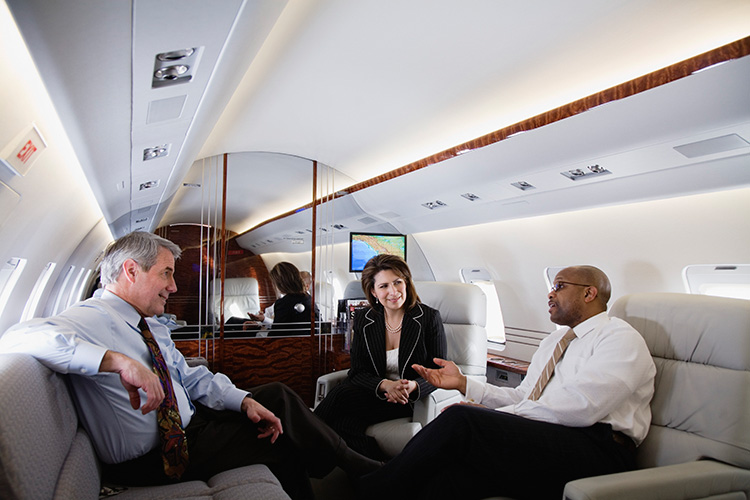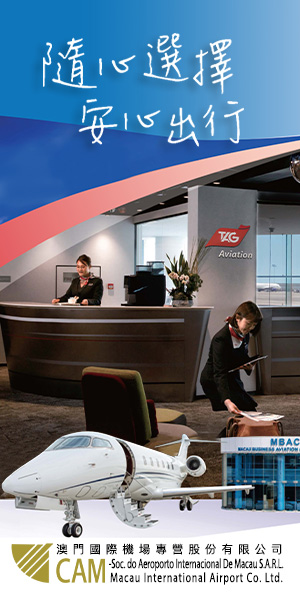The corporate decision to acquire an aircraft for business use needs to be followed by the formation of a capable team of professionals to get a favorable transaction done. For the vast majority of corporate clients, purchasing an aircraft is a new process, and outside help will be necessary in order to do the best job of: (1) determining the aircraft brand and model best suited to corporate needs, (2) identifying target aircraft in the market, (3) initiating and managing the transaction, including ruling out unfavorable aircraft, and (4) reaching agreement and following through to closing.
The only thing that is worse than losing a favorable transaction is entering into an unfavorable transaction.
- The Technical Advisor / Broker.
Both of these talents are essential, and in some cases, you will need two different people to fill these roles. The technical advisor will identify aircraft models that suit your corporate objectives, considering: (a) aircraft range requirements, (b) seating capacity, (c) support infrastructure, and (d) budget. The broker (who may also be the technical advisor) will identify potential target aircraft for acquisition. The technical advisor will be in a position to assess the relative benefits of one aircraft over another.
The value and utility of a particular aircraft will be heavily influenced by things that are not visible to the naked eye. For example, manufacturers often improve an aircraft during a production run, and those aircraft built after the improvement (usually a known manufacturer’s serial number) are significantly superior to earlier aircraft. Similarly, manufacturers will approve and sell upgrades and modifications that increase value and utility. In some cases, the upgrade will be nothing more than expensive paperwork (for example, permitting greater fuel load and range) and only a review of aircraft records will show this. Two visually identical aircraft may be millions apart in value based on information known only to the best technical advisors.
Once you have identified one or more target aircraft, the technical advisor will work with your legal counsel to prepare contracts that address your needs and expectations for the specific aircraft being pursued. And after contracts are signed, and your inspection is underway, your technical advisor will oversee the inspection, relay all relevant information, and determine whether the seller and its aircraft are meeting the contractual standards. On occasion, your technical advisor will tell you to walk away from an aircraft because it is not suitable for your needs, or because it has significant problems that make other aircraft more attractive.
- The Authorized Executive.
Aircraft transactions move very quickly – especially pre-owned aircraft transactions. Sellers are very reluctant to wait for a buyer, and the contracts are very strict about deadlines and forfeiture of deposits. Even if you purchase a new aircraft, the manufacture will have very strict deadlines for payment and for selection of options and materials because they need to keep their production moving. At the same time, the purchase of a corporate aircraft needs to satisfy the personal preferences of senior corporate executives, so key decisions cannot be easily delegated to other executives.
The challenge for the corporate buyer is to secure the time and attention of the authorized executives so that the transaction will move forward effectively. In order to get an aircraft under contract, you will need to make multiple written offers, and respond to counteroffers during the same business day. If you cannot act quickly enough, the aircraft will be sold to another purchaser. Once a deal is agreed, any executive having the power to approve the transaction will need to be available to see the aircraft, and speak
with advisors during the inspection. Funds will need to be moved including the security deposit, inspection costs, test flight costs and fees for professional services. And most importantly, the authorized executive must be available when critical decisions are to be made as to whether you proceed with the purchase or abandon it.
It is important to emphasize that pre-owned aircraft purchases move much more quickly than new aircraft purchases. Pre-owned aircraft purchases demand a great deal of executive attention over an intense period of weeks or months including the need to make critical decisions as to aircraft suitability, repairs, maintenance, hangar and crew. If your corporate structure and culture does not allow for the kind of speed and decisiveness required for a pre-owned aircraft transaction, then it should be avoided because missed deadlines can result in the loss of deposit money, and ultimately make it impossible to pursue an aircraft purchase.
- Legal Counsel.
Contracts to purchase aircraft are unique and require specialized legal support. Aircraft are often purchased from remote nations, and the ability to lawfully acquire clear title, and to secure your own registration at closing, requires a legal team licensed and versed in the aviation laws of all countries involved. This often requires employing more than one legal counsel. Large transactions create large mistakes, and it is prudent to invest in good counsel early to minimize mistakes.
Effective legal counsel also gets the transaction past difficult situations, including legal complications. For example, when a transaction is at risk of collapsing due to disagreement over the contract or a problem with the aircraft, experienced aviation counsel will be able to structure alternatives and compromises that may save a good transaction. Legal counsel will also save you from entering into a transaction that you might later regret. Periodically, an aircraft will be undesirable due to problems in documentation, or claims that impair legal title.
Lastly, good legal counsel will manage the transaction to closing. After a purchase agreement is signed, there are a multitude of steps to be taken by both sides, and legal counsel will manage this for you. The closing events will be very complex in a transaction involving parties in different nations, often many time zones apart. Documents must be exchanged and funds released in a precise sequence so that the purchaser is protected.
- Play to Win.
A well-organized team, with the authority to make decisions, will have a tremendous advantage in aircraft purchase and sale transactions, and all of the above points apply to aircraft sales as well as purchases.

